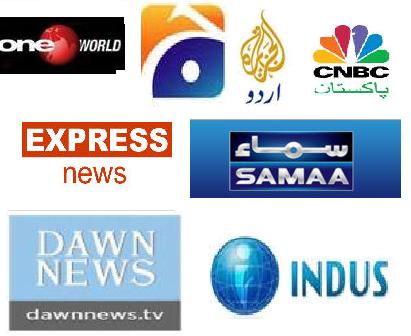| Pakistan’s media shows the way |
 |
 |
| Sunday, 19 June 2011 16:28 |
 By Jyoti Malhotra By Jyoti MalhotraThe sheer bravery and courage with which the press in Pakistan has taken on the establishment over the killing of Saleem Shahzad, a former editor of Asia Times Online, as well as forced the Sindh government to run for cover over the daylight murder of a 18-year-old boy by the Rangers, makes me bow my head both in salute and wonderment — but also in gratitude.
Originally published by The Express Tribune
Incredibly, the Pakistani press is in the act of covering a rare moment in its nation’s history, a moment that is precious yet fragile. These journalists have put their careers, their bank balances and their reputations on the line by going after He Who Shall Not Be Named.
Was it the ISI who killed Saleem Shahzad? Why did the Rangers confront a young man by pointing a gun at his chest? And in the wake of Osama bin Laden’s killing, the robust criticism of the Pakistani Army by the Pakistani press seems to have forced open a debate within the army on its role in nation-building.
The army was tormented enough to point its finger at ‘some quarters…trying to deliberately run down the armed forces and army in particular…This is an effort to drive a wedge between the army, different organs of the state and more seriously, the people of Pakistan.’
Of course, the Pakistani press is no stranger to threat and physical intimidation. During the Ziaul Haq era, several journalists were whipped with metal chains, but they stood their ground.
As a member of the South Asian fraternity of journalists, I think it’s time to salute the rare courage Pakistan’s media continues to display by just going about earning its daily wages: Reporting the story as it takes place and writing it without fear or favour.
So is the fact that I am an Indian matter here? Nirupama Subramanian, a well-known journalist from India’s The Hindu, who recently returned home after a particularly engaging tour of duty in Islamabad, wrote in the aftermath of the Bin Laden killing that India should stay out of the debate on democracy currently gathering ground within Pakistan because each time Delhi opens its mouth to say something, it puts its foot right into it.
Nirupama’s analysis is well-taken, and some would say it applies to the Indian press as well. I disagree. I think the time has come for Indians and Pakistanis, as well as Sri Lankans, Maldivians, Bangladeshis, the Bhutanese, the Nepalis — and yes, even the Afghans — to say our piece, as we see it, across the South Asian landscape.
The time has come, I think, for each of us to reassert our South Asian identities, along with our individual citizenships. We need to applaud and encourage and criticise our fellow communities across South Asia, as they build their histories and their nations. Naturally, the press is an integral part of this unfolding story.
But watch what really happens. If any state doesn’t like what you report — well, then, you won’t get a visa the next time around to report it. This is especially true of India, Pakistan and Sri Lanka.
But states have power over civil societies only because we let them. India — or Pakistan, as the case may be — is the enemy, because we’ve grown up with that idea. But imagine if we employ an alternative idea of simply of not being afraid/hostile.
The press in Pakistan is showing South Asia’s media the way. We need each other. Let us stand up for one another. |
| Last Updated on Sunday, 19 June 2011 16:44 |



